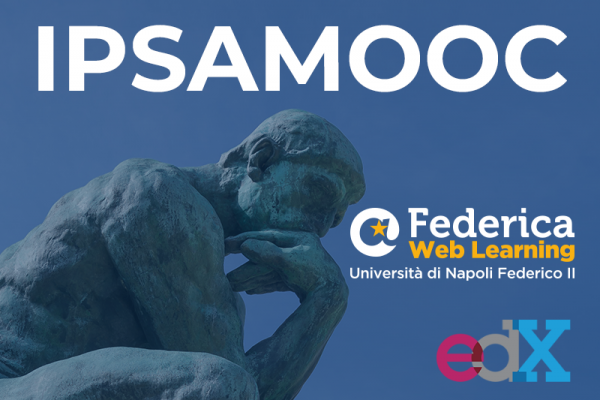Since it first appeared in China, the coronavirus has gradually forced 1.5 billion students to stay home, 91% of the world’s total according to UNESCO. Within three months, many education institutions from K-12 to university had to move from classrooms to virtual environments and methods and results have differed from case to case. Although video conferencing software platforms provide a temporary solution to the online transition that respect existing classroom programs, it has been widely recognized that emergency remote teaching and online learning are not the same. Teachers and learners alike need different skills and competences to successfully deal with the changing formats, activities, roles and interactions in the online environment. Using, or re-using, MOOCs offers an amazing opportunity to create structured online courses with a balance of quality asynchronous content and synchronous seminar and feedback time.
To support the IPSA community of professors and students as they marshal an almost real-time response to the call for online learning, we share some useful links to help to teach and learn through quality open educational resource. (e-learning on the IPSAPortal)
How to Teach Online
For those who would like to learn how to design their online course with OER, they can follow courses like
Virtual Teacher Specialization University of California, Irvine;
Foundations of Teaching for Learning: Introduction to Student Assessment Commonwealth Education Trust;
How To Teach Online: Providing Continuity for Students on FutureLearn;
Designing with Open Educational Resources (OER) on edX, the Harvard and MIT platform; and these courses provided by the
European Schoolnet Academy network, aimed at professional teacher training. For the more adventurous, it is also possible to exploit the potential of tools aimed at creating open textbooks, such as
PressBook and
The Open Faculty Patchbook.
How to Learn Online
To better understand the framework in which the MOOC movement, and some of the most influential methods for online learning, has been developed, one important tool is the course
Connectivism and Learning, by Stephen Downes, the American pioneer of e-learning, who together with George Siemens started the MOOC phenomenon in 2008. To experience the challenges of learning online, there are courses like
How to Learn Online by edX and
Learning How to Learn: Powerful mental tools to help you master tough subjects by Barbara Oakley and Terry Sejnowsky, the most followed MOOC in the field with more than 2 million enrollments.
MOOCs
More than 15,000 courses from 1,000 universities, with more than 110 million students on board at the beginning of 2020, are available on the major platforms. Several are useful for Political Science. The Coursera platform offers a range of relevant courses like
Moral Foundations of Politics from Yale,
Understanding International Relations Theory from Russian National Research School of Economics, Chinese Politics (
part 1 and
part 2) from Hong Kong Business School, plus more courses on
Globalisation, Economic growth and Stability. Coursera is also extending free certification in some of these courses until the end of May 2020. Futurelearn, the British platform, provides access to courses like
Propaganda and Ideology in everyday life from the University of Nottingham and the British Library,
Global Resource Politics from the Hanyang University,
Religion and Conflict from the University of Groningen and
Religion, Radicalization, Resilience from the European University Institute.
IPSAMOOCs
IPSAMOOCs are an essential tool for a wide number of users: students who are considering or starting a degree in Political Science; professors and lecturers at any level, who can innovatively complement their existing courses; anyone interested in a better understanding of the challenges facing contemporary democracies.
Authored by some of the most outstanding academics in the IPSA community, IPSAMOOC is a joint project from IPSA and Federica WebLearning. The Center devoted to innovation, experimentation and dissemination of multimedia distance learning at the University of Naples Federico II.
Any IPSA member can use any of the IPSAMOOCs, single or selected modules from diverse IPSA MOOCs, as the interactive coursebook for their course, or as a companion to their regular course content, as part of a fully online, flipped classroom delivery mode. Students can study the content asynchronously and then, synchronous time in the virtual classroom can be used to explore the topic and related issues with the students in more depth.
Course List:
Comparative Political Systems: This course analyzes the different forms of government, their structure and role, the assets and liabilities of the different institutional structures and approaches and the effectiveness of different democratic regimes.
Contemporary Issues in World Politics: This course reviews the driving forces of International Politics. It first describes the post-World War II international order before moving on to look at its breakdown and resultant transformation.
Democracy and Autocracy: This course aims to analyze why and how democratic regimes emerge from autocratic regimes, as well as why and how democratic regression or democratic breakdown takes place.
Understanding Political Concepts: This MOOC teaches conceptual thinking and elementary theory-building through Hyperpolitics, an interactive dictionary for understanding and working with the most central concepts in Political Science.
Comparative Research Designs and Methods: This course provides an introduction and overview of systematic comparative analysis in the Social Sciences and shows you how to use this method for constructive explanation and theory building.
Global Politics: The course explores global order and local disorders to explain why International Studies in the West are moving towards a planetary approach to World Politics.
Introducción a la teoría política: This course aims to present the history of political theory from its beginnings with Plato to the work of Jurgen Habermas.
Individually these form indispensable chunks of insight into the changing nature of democracy and other contemporary political issues. Together the first five courses form a core curriculum that provides useful food for thought and discussion in these turbulent times.
IPSAMOOC XSeries and courses are available on the
edX platform.
For more information:













